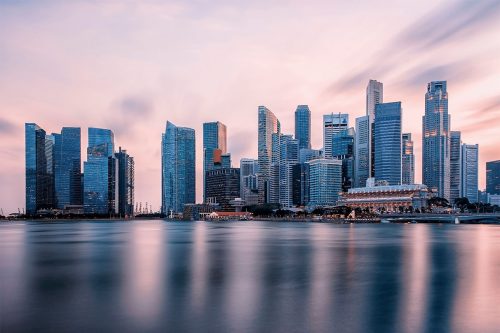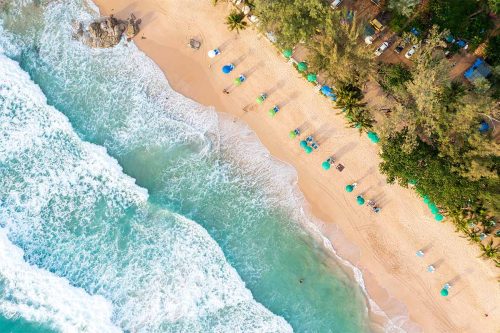
Making Thailand the new model for gaming
11 July, 2025
Sustainability and Suitability: Considerations for new Gaming Regulators
23 July, 2025Winna Media Insights
11 July, 2025
It’s Time to Reimagine the Future for Thai Casinos
The Kingdom could use the Entertainment Complex Bill’s withdrawal to develop a uniquely Thai gaming, entertainment and tourism model that best plays to the Kingdom’s traditional strengths, says Christopher Cottrell.

The withdrawal of the Entertainment Complex (EC) Bill from the Thai government’s legislative process could be a timely opportunity for all stakeholders to recalibrate.
Marrying the Kingdom’s existing world-renowned tourism offering into a format and structure that provides a luxurious and highly secure environment for visitors and select Thai nationals to gamble and vacation could answer many of the questions that have been posed by advocates and opponents of casinos.
Tightly controlled gaming that combines the best of Thailand with global best practices could protect the public and generate jobs in tourism, accounting, management, and security.
As you’ll read over the coming weeks, members of Winna Media’s EC Advisory Panel are also busy rethinking how Thailand could provide a nuanced balance between the views of the Thai public, tourism industry and the gaming sector.
To launch that discussion, here’s my take on the situation as someone with a long-standing perspective.
Nature, great cuisine and lively entertainment are part of the bedrock of Thailand’s tourism offering. Imagine if that was complemented by the development of ‘Special Tourism Zones’ (STZs) or ‘Special Entertainment Complex Zones’ – high-security theme parks, including luxury hotels, live entertainment venues for concerts and sports, fine dining, retail, with no more than 10% dedicated to gaming, and tightly controlled banking managed by a special and publicly accountable financial police intelligence unit.
It’s a structure that could better facilitate the Las Vegas or Cotai-style strips that international operators are keen to provide, and if it were inside a heavily controlled STZ, it would complement the existing tourism infrastructure.

A Model for Entertainment Complexes
Long-term observers like James Kaplan, a board advisor to Bangkok Land Public Company Ltd, which owns the IMPACT Arena, Conference and Exhibition Centre in northern metropolitan Bangkok, are suggesting that by setting up STZs Thailand won’t have to re-regulate its financial system and tourism licensing framework to accommodate gaming operations, which could speed up their introduction.
Thailand also has successful models or prototypes for spaces like the Eastern Economic Corridor (EEC) and the tourism sandboxes that were set up during the COVID-19 pandemic.
The EEC in Chonburi, Rayong and Chachoengsao provinces already has a mandate to roll out the national policy of ‘Thailand 4.0’ aimed at transforming the economy with advanced technologies and infrastructure development. Some analysts believe that EEC could tender a proposal for a high-end, super-high-tech STZ linked to U-Tapao airport with tax and non-tax incentives in place to entice local and global investors. Potentially, it could be a model for the other areas where ECs were proposed under the now-withdrawn bill – Bangkok, Chiang Mai and Phuket.

The Phuket sandbox scheme
In 2021, the Phuket sandbox scheme allowed fully vaccinated travellers to enter Thailand without going through quarantine. Participating hotels had to meet clear standards, guests had to stay at least seven nights and download a tracing app.
From that experience, it’s clear in principle that access by a defined group to a specially regulated area is perfectly feasible. Neither is it an unimaginable leap for visitors to have ceilings on how much money they can bring in, on-site ATMs with daily cash limits and specialist services for VIPs to oversee their spending. Overall, access could be tightly managed, with no pawnbrokers, no one offering cash buybacks for luxury watches and no freelance ‘bankers’ allowed.
The STZ could provide foreigners with an entry visa exclusively for that area and a special pass lane for Thais who meet the agreed entry conditions, with clearly defined periods to remain there. That would go some way to address the concerns that unfettered access to casinos would create a population of problem gamblers. Furthermore, as in Singapore, an anonymous hotline could be set up to report people with gambling issues.
Kaplan can foresee a GGR of $10 billion from this sort of operation, with a 20% tax take in addition to whatever fees would be required to maintain the STZ’s infrastructure. It’s that sort of longer-term assessment that should allow the industry to take a more measured view on Thailand. In turn, Thai officials could use the hiatus to further engage the public and key stakeholders to get a national consensus on the future of gaming.
After all, many things can be achieved in the Land of Smiles with a bit of patience, perseverance, and a positive attitude. Even if that means international operators will have to hold onto their cards longer than they’d planned.



